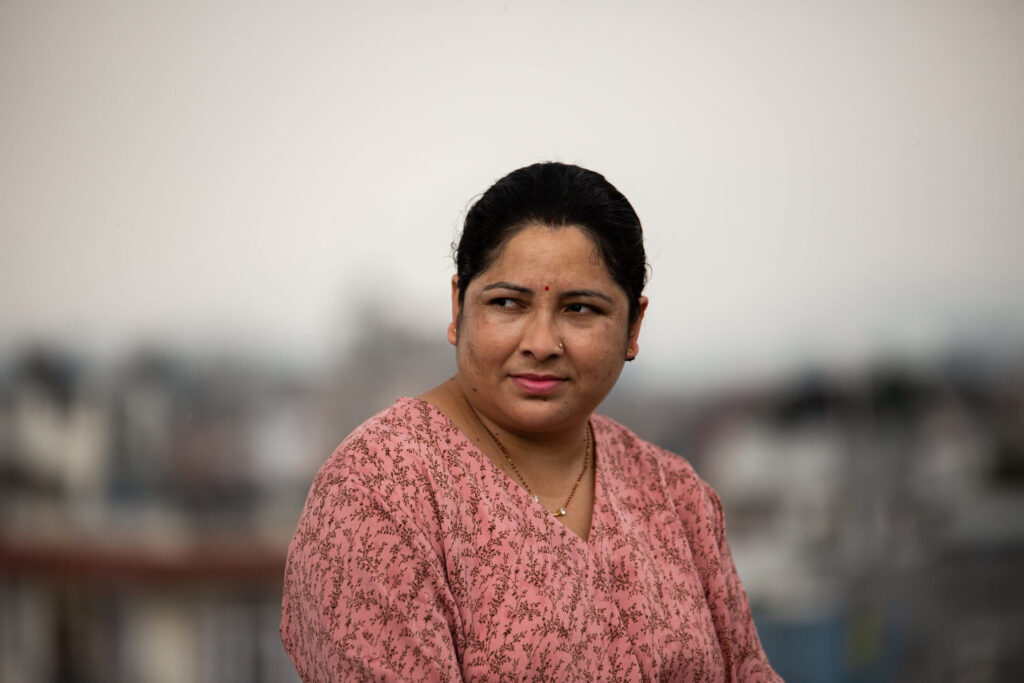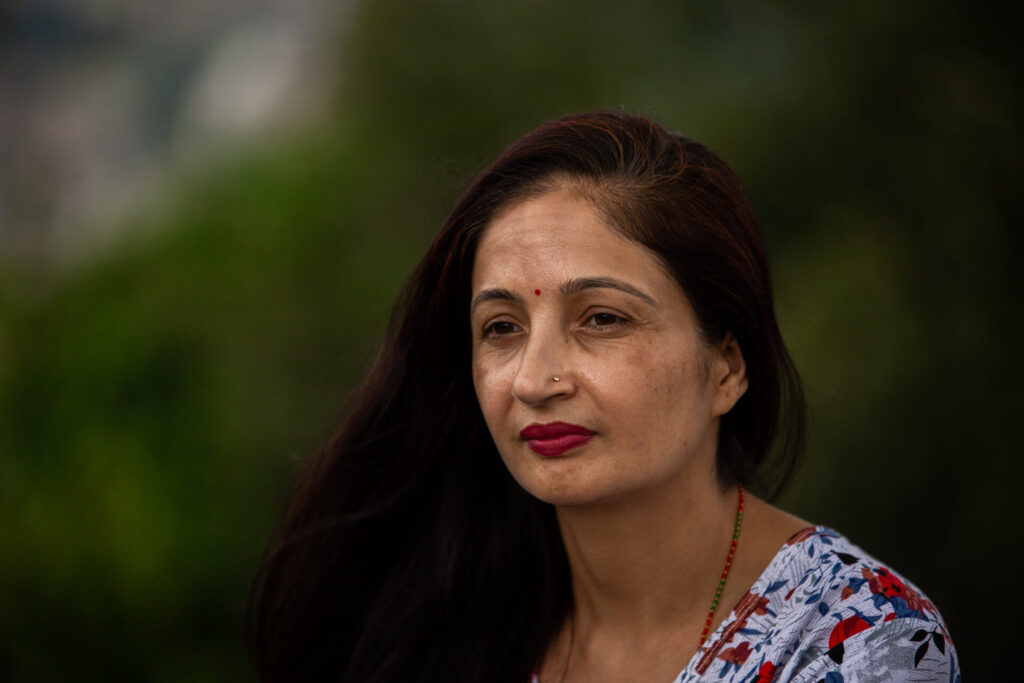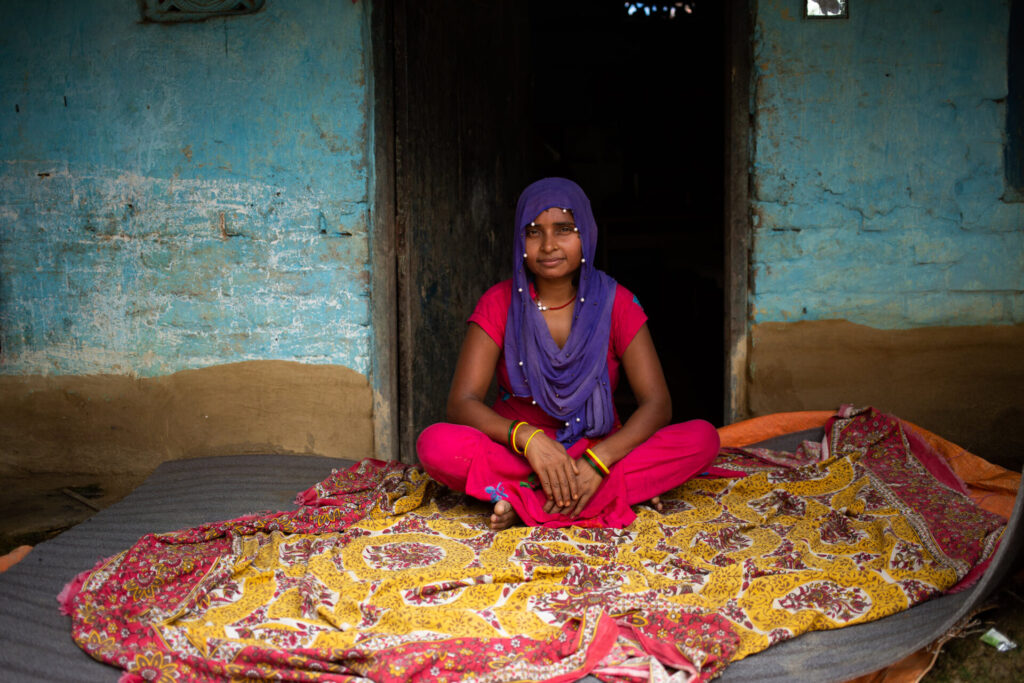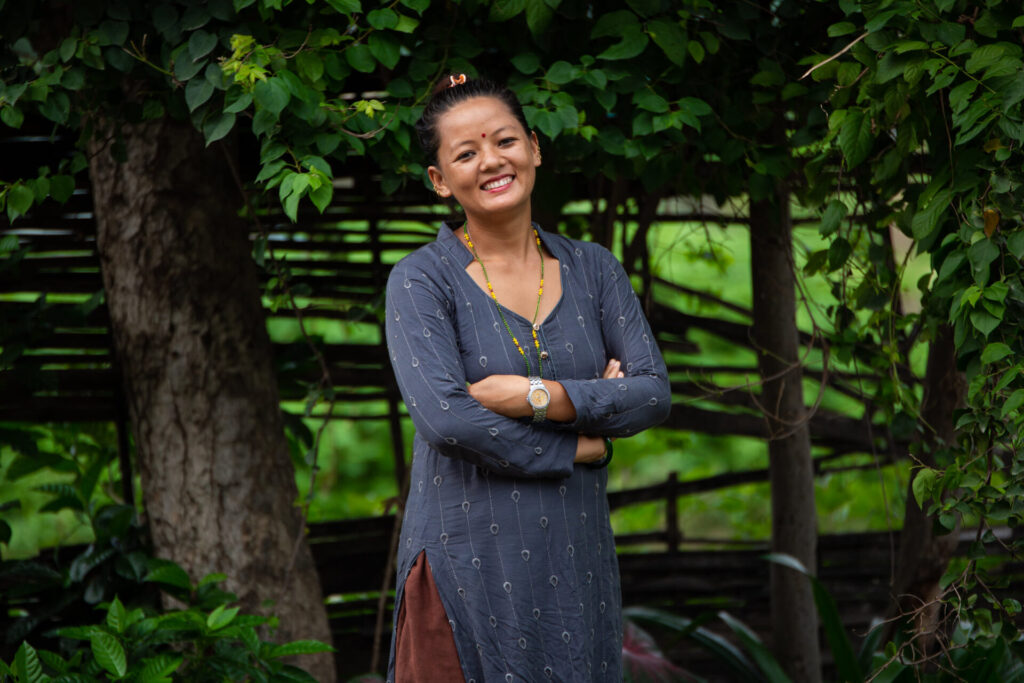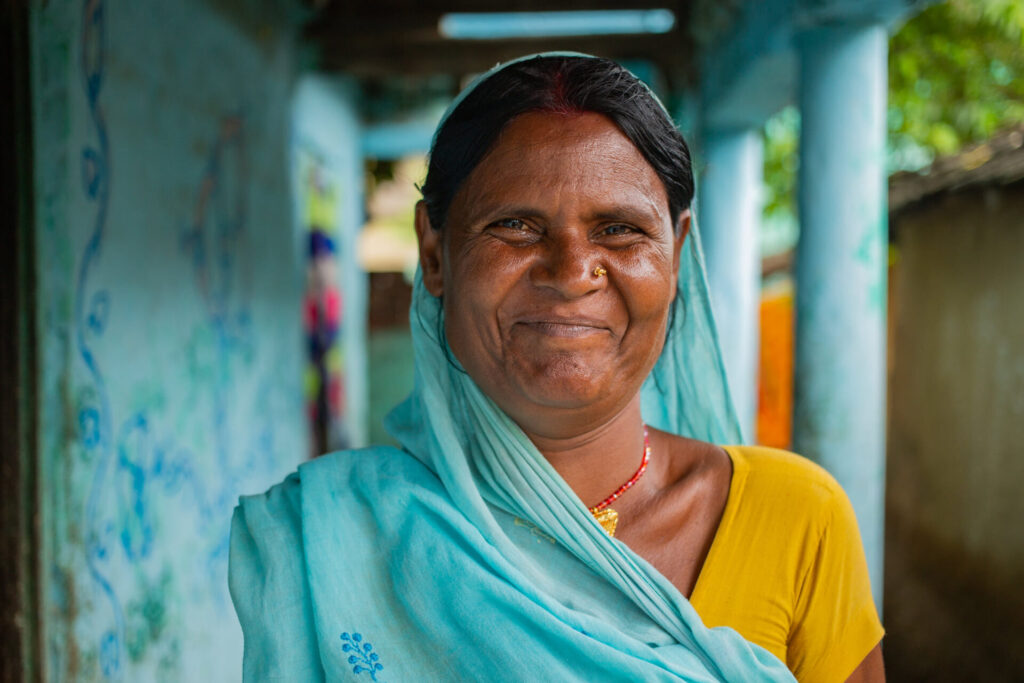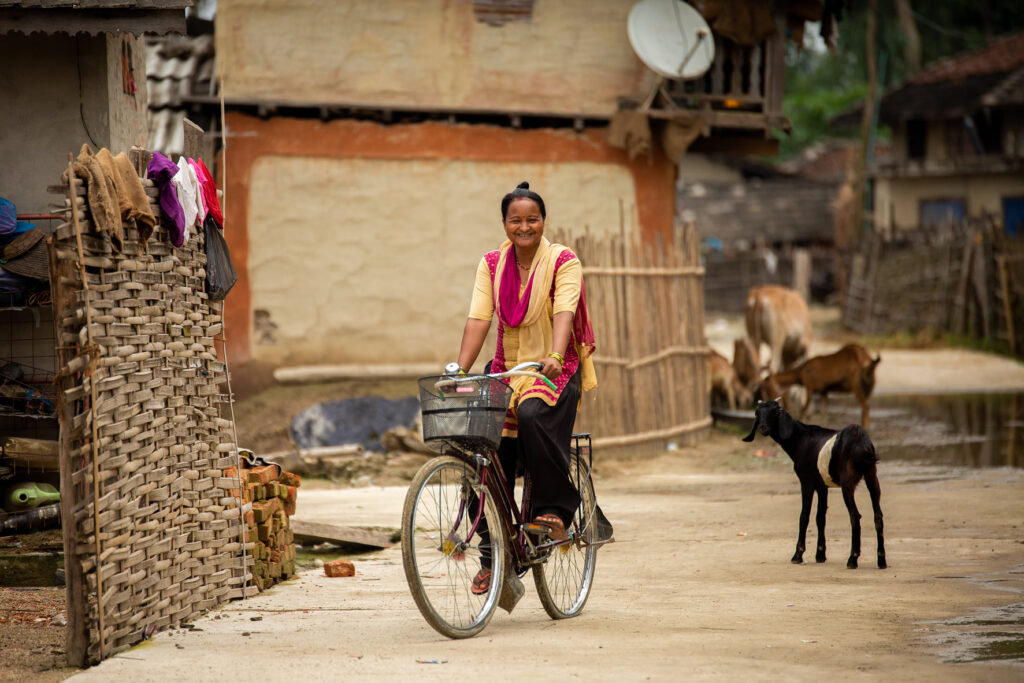
“Rice was very scarce growing up. It was food you sometimes heard of, food of the town and of the rich people. I remember mother saved a bag of rice like treasure in one corner of the kitchen. She took out handful to mix with the corn only during festivals and for important guests. Everyone would eat a little more that day. Mother would say to me – “You have to be rich to have white rice. Maybe someday you will.” When I got married, my husband says that his brothers mixed 10 kilos of rice with corn for the guests at the wedding. They could not offer all white rice. So it was difficult in my husbands house too. We came down from up the hill to the side of this trail looking for better conditions for our children, in the hopes that if we somehow opened a tea shop we will be able to send our children to school. Though things have changed and there is rice and our children go to school, it is difficult for us because everything costs money. We cannot exchange crops for things we need. Either you have money or you die of hunger. During monsoon no one walks this way and there is no money. And we go back to eating corn and saving the rice.” (Bimala Rai, Tafethok 8, Taplejung)
